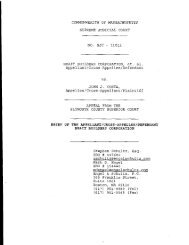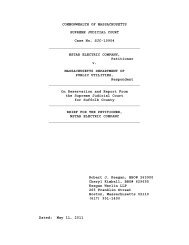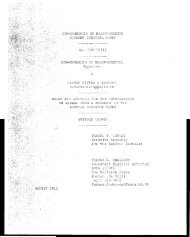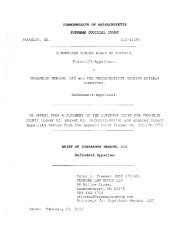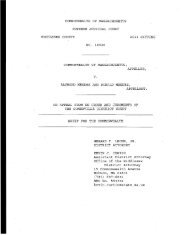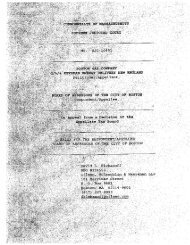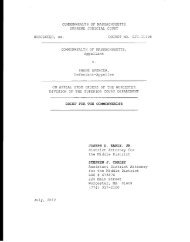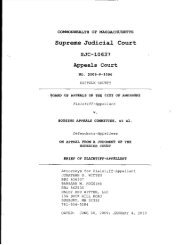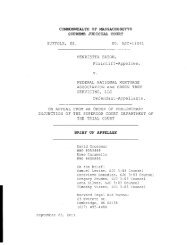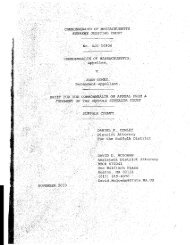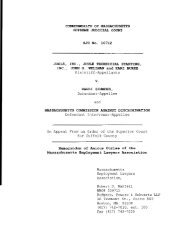462 Mass. 1 Appellant Ray Brief - Mass Cases
462 Mass. 1 Appellant Ray Brief - Mass Cases
462 Mass. 1 Appellant Ray Brief - Mass Cases
You also want an ePaper? Increase the reach of your titles
YUMPU automatically turns print PDFs into web optimized ePapers that Google loves.
-5-<br />
of the Commonwealth. See Benton v. Maryland, 395 U.S.<br />
784 (1969). Thames v. Commonwealth, 365 <strong>Mass</strong>. 477<br />
(1974). General Laws c.263 §§7, 8, 8A (2011 ed.)<br />
B. There was no "manifest necessity" for<br />
the mistrial because the judge failed to<br />
ascertain if there was a reasonable<br />
probability of a unanimous verdict prior<br />
to declaring a mistrial.<br />
"When a mistrial is declared over the defendant's<br />
objection, the general rule is that retrial is barred.<br />
An exception to the general rule exists for cases in<br />
which the mistrial was justified by manifest necessity."<br />
Commonwealth v. Andrews, 403 <strong>Mass</strong>. 441, 447 (1988),<br />
quoting Oregon v. Kennedy, 456 U.S. 667, 683 (1982).<br />
There was no "manifest necessity" to declare a mistrial<br />
because the judge failed to explore other alternatives.<br />
See Commonwealth v. Steward, 396 <strong>Mass</strong>. 76, 79 (1985)<br />
Specifically, the judge declined to give the Tuey-<br />
Rodriguez instruction, as both counsel requested. The<br />
third note from the jury was the first indication that<br />
the jury was experiencing any difficulty arriving at a<br />
verdict. The Tuey-Rodriguez instruction is designed to<br />
assist the jury in this particular situation and the<br />
judge should have given the jury the benefit of this<br />
instruction prior to declaring the jury deadlocked.



